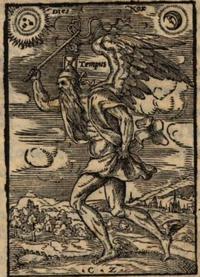Call for Papers: Early Modern Temporalities
A multidisciplinary workshop organised by the Early Modern Seminar at the Faculty of Humanities, University of Gothenburg.
Friday 23rd September, 2022
In the 21st century the human relation to time and temporalities has become the focus of much debate. Part of this has been the recognition that different cultures and epochs have related to time and temporality in vastly different ways.
This is certainly true of the Early Modern period, as suggested by Étienne Bourdon's discussion of “the complexity and diversity of the conception of time during the Renaissance” as well as the “multiplicity of temporal conceptions” (“Temporalities and History in the Renaissance”, 2017).
This workshop seeks to follow up on and build upon these observations. We therefore invite abstracts of 100–150 words for 20-minute papers to be presented at a full-day multidisciplinary workshop to be held in person at the Faculty of Humanities, University of Gothenburg.
Please send abstracts to Philip Lavender (philip.lavender@lir.gu.se) by 27th May, 2022.
Suggested topics/themes are as follows:
- Terminological considerations: what do time and temporality mean in early modern contexts? What language did early modern writers use to describe such concepts?
- Theoretical applicability: to what extent does modern theory on temporality apply to early modern contexts. What would an early modern theory of temporality look like?
- Case studies: Research on specific cultural artifacts (texts, plays, works of art) which problematise or challenge normative ideas about time and temporality.
- Subject categories: Considerations of how time and temporality intersect with categories such as nationality, race, gender, sexuality, age, embodiment.
- Science and technology: Analyses of how developments within these fields had an impact upon wider cultural understandings of time and temporality.
- Time and temporality at the margins: perspectives on time and temporality from marginalised contexts.
- Chronology and periodisation: In what ways do the concepts of time and temporality challenge the very bases upon which we determine the “early modern”?
